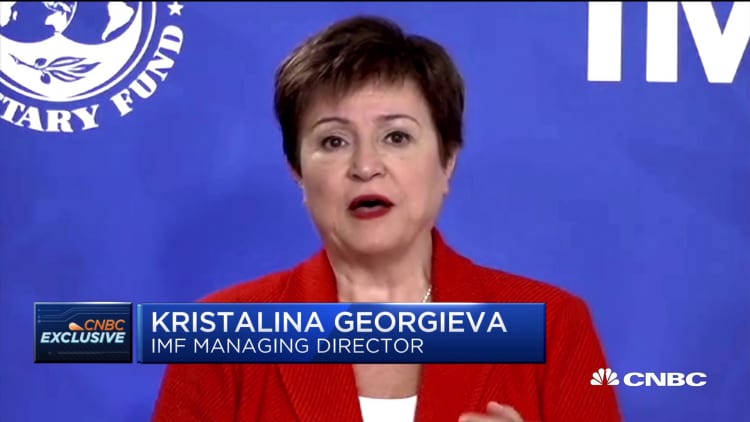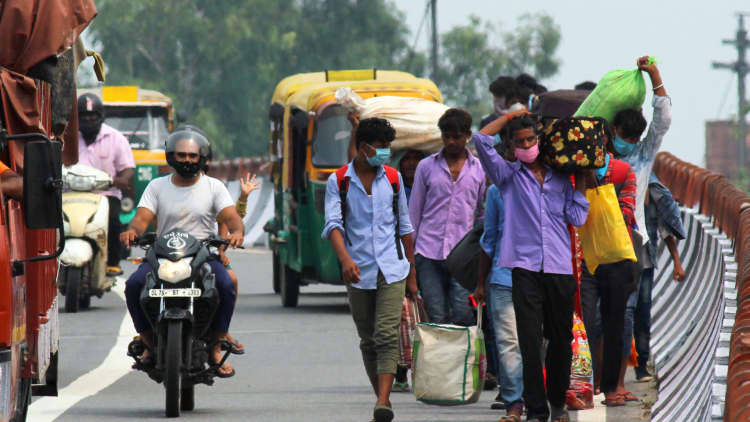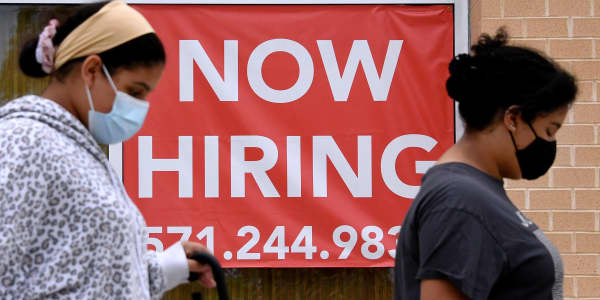LONDON — With women proven to be one group most at risk to the economic impact of the coronavirus, the International Monetary Fund has called for more support from global governments.
Data shows a more significant dropoff for women than men when comparing their movements in the 30 days prior and 30 days after the imposition of virus lockdowns. The data, which was gathered by Vodafone in Spain, Portugal and Italy, coincided with school closures in the three countries.
"This suggests that women carry a disproportionate burden in caring for children, which may jeopardize their employment opportunities," the IMF said in its latest economic analysis.
The idea that the crisis is widening the gap between men and women becomes more evident when looking at the Italian data in more detail.

"Focusing on a few regions in northern Italy that closed schools two weeks before the national lockdown, mobility data show that the gender gap already widened at the time of school closures," the IMF said.
It then added that "the national stay-at-home order increased the (gender) gap further, possibly reflecting higher female employment in contact-intensive sectors (such as retail, tourism, and hospitality) that were closed during the national lockdown."
The Fund warned back in July that in the U.S., about 54% of female workers are employed in sectors that cannot work remotely. In Brazil, that number rises to 67%. This, therefore, risks increasing the gap between men and women with the latter having a higher probability of losing their jobs due to the pandemic.
Research from Citi warned in May that about 44 million people worldwide, excluding China, could be about to lose their job in the six sectors worst affected by Covid-related restrictions. Thirty-one million of those workers would be women, it said.
As a result, the Fund believes supportive laws could be introduced to reduce gender imbalances.
"Unlike during previous recessions, women's employment has generally declined more than men's has," the IMF said.
"That is why it is so important to step in with targeted policy intervention to ensure that this does not lead to a persistent widening of inequality across gender," Damiano Sandri, a deputy division chief at the IMF's Research Department, told CNBC.
"For example an important policy measure that can be used is to ensure that people have access to parental leave and I am using people because of course we want to provide women with the opportunity to have parental leave to care for children, but we also need to ensure that men themselves can take time off from work so they can share equally the burden of looking after children while schools are closed," Sandri explained.







